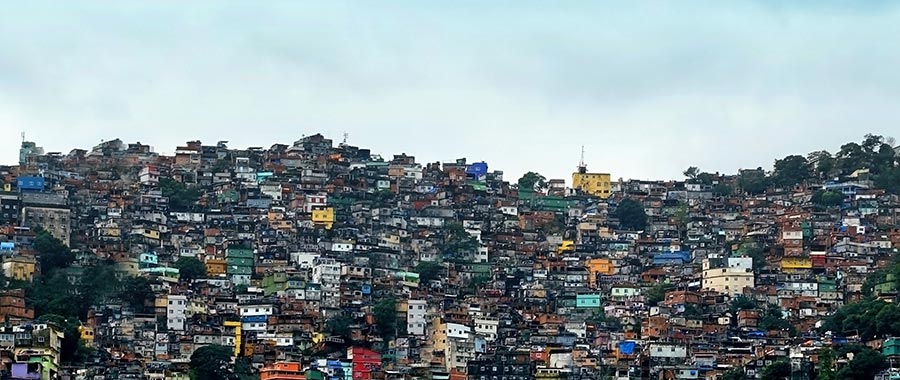The quest for poverty eradication is not merely a material concern; it is a multi-faceted challenge that necessitates a profound structural transformation within societies. By invoking the principles espoused by Bahá’í teachings, one can illuminate the pathways necessary for such transformation, thereby fostering sustainable development and social equity. The urgency of this endeavor lies in the recognition that poverty is not solely an economic affliction but is deeply entwined with the social, political, and spiritual fabric of humanity.
At the heart of Bahá’í teachings is the premise that the alleviation of poverty requires a holistic perspective—a shift from conventional, often superficial measures to a more systemic approach. This points to the fundamental paradigm that poverty eradication must involve the transformation of societal structures that perpetuate inequality and disenfranchisement. It is essential to delve into the intersections of these structures to uncover the underlying causes that contribute to persistent poverty.
One of the foremost challenges is the inequitable distribution of resources. Bahá’í teachings emphasize the principle of universal affluence, advocating for equitable sharing of wealth and opportunities. This can be achieved through mechanisms that promote fair economic practices, ensuring that all individuals have access to the resources necessary for their development. The idea of a just economy extends beyond mere charity; rather, it compels society to re-evaluate policies that exacerbate disparities while cultivating a culture of collaboration and inclusivity.
In pursuing structural transformation, it becomes vital to engage in empowering marginalized communities. The Bahá’í approach champions consultation as a means of collective decision-making. Such practices ensure that the voices of those most affected by poverty are not only heard but are integral to the formation of policies that govern their livelihood. This active participation fosters ownership of the solutions and ignites a sense of agency among individuals, fostering resilience against the vicissitudes of socioeconomic challenges.
Furthermore, education emerges as a cornerstone in this structural transformation. The Bahá’í teachings assert that education is not merely a tool for acquiring knowledge but a powerful catalyst for social change. By prioritizing universal education that transcends geographic, gender, and socioeconomic barriers, societies can cultivate a populace equipped with the critical thinking skills necessary to challenge entrenched injustices. Educational initiatives should encompass a holistic curriculum that intertwines practical skills with moral and ethical development, promoting a sense of global citizenship and communal responsibility.
Inextricably linked to education is the empowerment of women, which the Bahá’í writings position as a fundamental requisite for societal advancement. Women, constituting a vast reservoir of untapped potential, play a pivotal role in economic development and poverty alleviation. Structural transformations must therefore prioritize initiatives that dismantle systemic barriers to women’s empowerment. Investing in women’s education, health, and economic independence not only elevates individual families but catalyzes broader societal progress. In essence, the upliftment of women is not merely a moral imperative; it is an economic necessity.
Moreover, the Bahá’í teachings advocate for a profound reevaluation of governance systems. Leadership that embodies ethical stewardship and accountability is crucial in effecting meaningful change. Transformative governance should prioritize the welfare of all citizens, utilizing participatory approaches that dissolve the traditional hierarchies often observed in political structures. An effective governmental framework must transcend partisanship, embracing a spirit of unity and collaboration. This repositioning of leadership dynamics ensures that policies aimed at poverty eradication are not only crafted with input from diverse stakeholders but are also implemented in a just and equitable manner.
Integral to the structural transformation proposed by Bahá’í teachings is the recognition of the interconnectedness of global societies. Poverty is a global ailment that does not respect borders; thus, a collaborative effort among nations is imperative. International efforts must be rooted in mutual respect, understanding, and shared responsibility. Global initiatives aimed at poverty eradication should prioritize sustainable development that supports both ecological integrity and social justice. The implementation of these initiatives requires a commitment to an ever-evolving dialogue that transcends cultural and national boundaries, fostering a collaborative spirit of human solidarity.
Ultimately, the call for structural transformation in the pursuit of poverty eradication resonates with the very essence of Bahá’í principles, which advocate for unity in diversity. A society that embraces collaboration, justice, and inclusivity will find that the eradication of poverty is not a distant ideal but an achievable reality. This transformational journey demands a shift in perspectives—one that acknowledges the intricate web of societal interdependencies and emphasizes the necessity of engaging every individual in the quest for universal prosperity.
In conclusion, poverty eradication is less a destination than a dynamic process that requires sustained commitment to structural transformation across multiple spheres of society. The principles entrenched in Bahá’í teachings illuminate the way forward, urging individuals and communities to undertake proactive measures that foster resilience, equity, and love. The implications of such a transformation are profound; by transcending the superficial economic fixes and addressing the root causes of poverty, society can cultivate an environment where all individuals thrive, thereby realizing the true potential of humanity.
